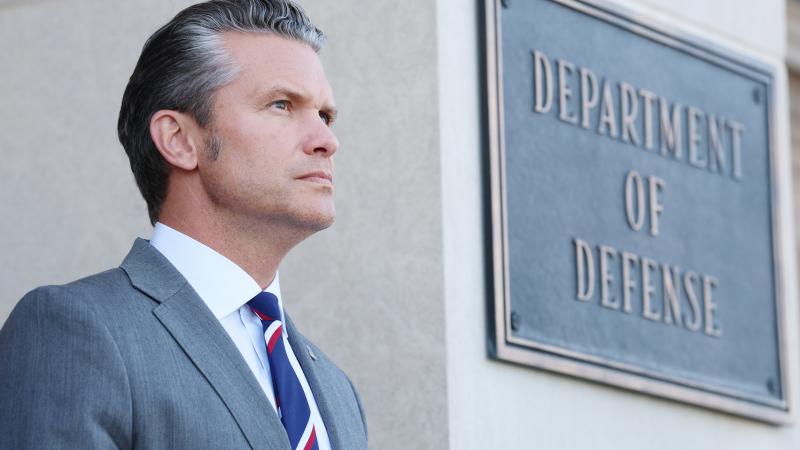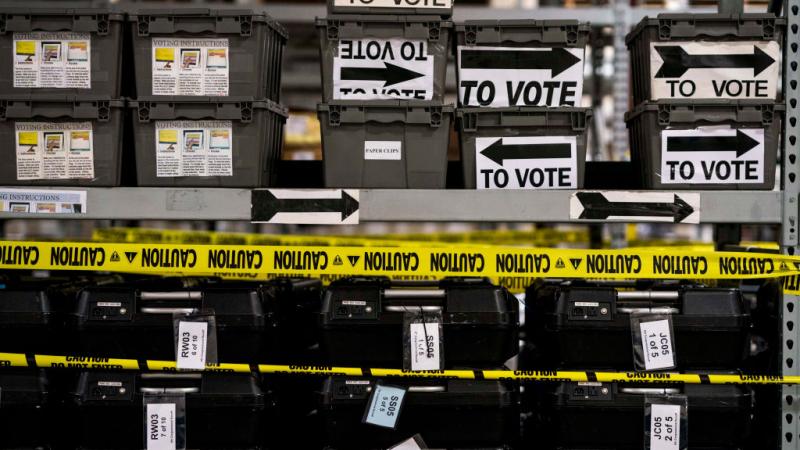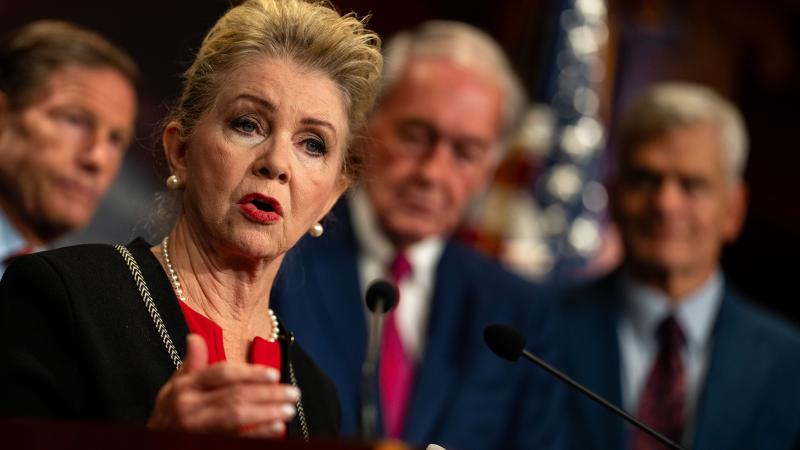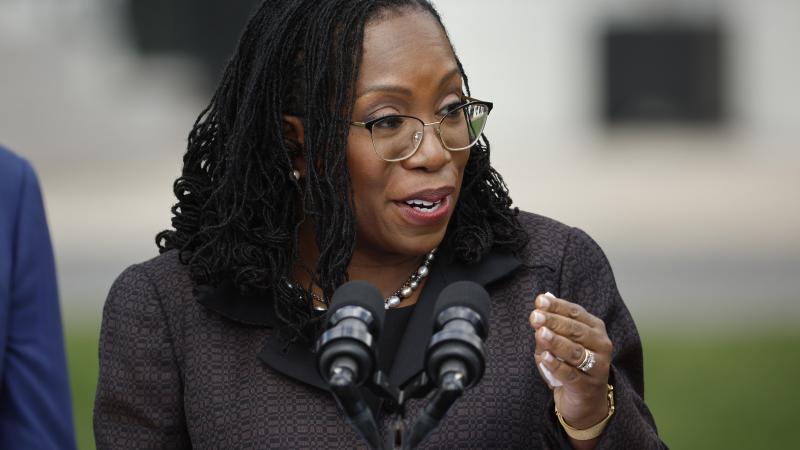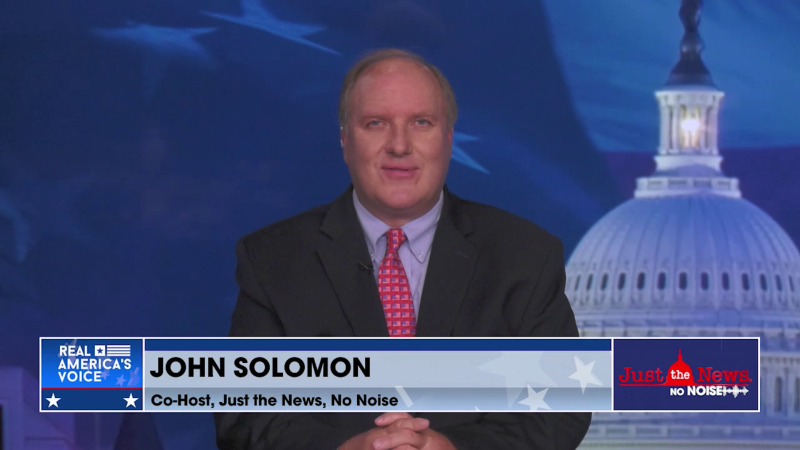Pentagon press pool's main hang-up: journalists confirming they 'understand' new policies
Overlawyered? Reporters appear reluctant to agree they “understand” the guidelines, which could open them up to possible prosecution if they receive classified information from any official.
The Pentagon press corps' rejections of Secretary of War Pete Hegseth’s new policies regulating access and reporting guidelines are calling it an assault on journalistic principles and the First Amendment. The Executive Editor of The Washington Post, Matt Murray, said the policy "runs counter to the Constitution’s guarantee of freedom of the press."
Conservative-leaning news outlets such as The Washington Times and Newsmax, a cable news channel and competitor to Fox News, reportedly said they would not sign the rules, either.
However, when the Department of War published the new policies earlier this month, the Pentagon Press Association and its allies raised only one issue with Hegseth’s staff, that reporters would likely refuse to sign any statement that they “understand” the contents of the new policies, according to emails and a senior Pentagon official who talked to Just the News.
Much of the Pentagon Press Association (PPA) membership have condemned new policies instituted by Hegseth designed to curb the solicitation of sensitive and classified information. The proposed restrictions include prohibiting reporters from entering certain areas without an escort, barring them from offices of senior military leaders unaccompanied, and informing them that they should not solicit sensitive information from military officials.
To lawyers, one word changes everything
The latter policy, in particular, has caused public consternation among the press corps. Lawyers and an association representing the PPA suggest that Pentagon correspondents would not want to open themselves up to possible prosecution without clear definitions of solicitation and other terms in the agreement.
Yet, internal communications between the lawyer representing the Pentagon Press Association and a Pentagon official show that the association and its allies only raised concerns about the “understanding” clause, not other First Amendment concerns the outlets have published publicly.
“I have received a copy of the revised In-brief statement of Pentagon policy, which continues to request reporters to acknowledge their ‘understanding’ of the policy as a condition to the receipt of a press pass,” PPA’s lawyer David Schulz wrote in an email. Schulz is the Floyd Abrams Lecturer in Law and Senior Research Scholar in Law at Yale Law School.
What part of "understand" do we not understand?
“As previously explained, this language is problematic for many reporters because the discussion of what constitutes ‘solicitation’ and other aspects of the policy are far from clear,” Schulz wrote. “We had understood that this unnecessary language would be replaced by a simple ‘received and read’ acknowledgment.”
Gabe Rottman, the Vice President of Policy at The Reporters Committee for Freedom of the Press, echoed the concern. He explained that his organization was led to believe that the journalists would only be required to sign an acknowledgment of a “simple receipt and review of the policy” rather than “the signatory’s ‘understanding’ of the policy,” according to a separate email reviewed by Just the News.
“We also anticipate that a number of news organizations will continue to have concerns about the purported legal distinction between passive receipt of information and active ‘solicitation’ that DoW regards as improper…” Rottman wrote.
You can read the communications below:
File
The policy, which was distributed to the Pentagon press corps on Oct. 6, outlines the War Department’s new policies to protect classified and other non-classified, but sensitive, information. It reminds military officers and other employees that they “face potentially severe consequences,” including criminal penalties, for disclosing any nonpublic information without authorization.
“Both military members and DoW civilian employees also face potential criminal liability under 18 U.S.C. §1905 for disclosure of confidential information or under the Privacy Act, 5 U.S.C. §552a, for knowing and willful unauthorized disclosures,” the policy reads.
Because it is against the law for military or civilian officials to release such information without approval, the Pentagon said journalists should understand that the officials could face criminal consequences for leaks and warned that “solicitation” of any employee to commit a criminal act is not permitted.
“Any solicitation of DoW personnel to commit criminal acts would not be considered protected activity under the 1st Amendment,” the Pentagon’s policy reads.
You can read the latest Pentagon press policy below:
Though the outlets are taking a public stand against the policies outlined in the Pentagon’s document, in private, their lawyers appeared to largely agree with the department’s ability to regulate its own building, journalist’s access to senior officials, and the rules for officials about sensitive information.
The Pentagon Press Association said last week the new policies "appear designed to stifle a free press” because they would force reporters to sign off on policies they disagree with. The association worries it would expose its reporters to prosecution for "simply doing [their] jobs."
“The policy conveys an unprecedented message of intimidation to everyone within the DoD, warning against any unapproved interactions with the press and even suggesting it’s criminal to speak without express permission—which plainly, it is not,” PPA said in a statement.
The association was joined by several of its members in condemning the policies, including The New York Times, The Washington Post, and Fox News. Nearly every other member of the corps announced that they would decline to sign the agreement. The only outlet to announce that its journalists would sign the document is One America News Network.
“This Wednesday, most Pentagon Press Association members seem likely to hand over their badges rather than acknowledge a policy that gags Pentagon employees and threatens retaliation against reporters who seek out information that has not been pre-approved for release,” the PPA said in a new statement on Monday.
The Pentagon policy has challenged that characterization as "pre-approval," which is tantamount to direct censorship. The DoW is assuring reporters that members of the press “are not required to submit their writings to DoW for approval” and that the restrictions on the release of classified or other sensitive information apply to department employees, military or civilian.
Nonetheless, the major TV news networks, ABC News, CBS News, CNN, Fox News Media and NBC News, released a joint statement on Tuesday declining to agree to the Pentagon’s new policies.
“Today, we join virtually every other news organization in declining to agree to the Pentagon’s new requirements, which would restrict journalists’ ability to keep the nation and the world informed of important national security issues,” the statement reads.
Not an unprecedented policy
“The policy is without precedent and threatens core journalistic protections,” the outlets asserted. “We will continue to cover the U.S. military as each of our organizations has done for many decades, upholding the principles of a free and independent press.”
However, restrictions on the press covering the U.S. military are not new, Just the News reported on Monday. As far back as 1918, the Sedition Act extended the Espionage Act of 1917 to cover a broad range of offenses, notably publications and even expressions of opinion that cast the government or the war effort in a negative light.
The text of that language made it a federal crime to "publish any disloyal, profane, scurrilous, or abusive language about the form of government of the United States, or the Constitution of the United States, or the military or naval forces of the United States."
World War II saw the first codified effort expressly directed at journalists. The Pentagon—known then as the War Department—implemented extensive restrictions on war correspondents covering the U.S. military’s role in the global conflagration.
The restrictions took shape in the wake of Executive Order 8985 issued by President Franklin D. Roosevelt shortly after the attack on Pearl Harbor in Dec. 1941, which established the Office of Censorship—tasked with doing what its name suggests, censoring all communications “by mail, cable, radio, or other means of transmission” between the United States and any foreign country.
The War Department’s “Regulations for Correspondents Accompanying U.S. Army Forces in the Field,” published the following month in Jan. 1942, detailed the compact between the armed forces and journalists covering them.
But, WWII-era regulations went even further than anything close to the current squabble. It required journalists to submit articles for a censorship review by an intelligence officer, who had the authority to delete portions of the article he deemed to violate the terms.
The Facts Inside Our Reporter's Notebook
Documents
File
